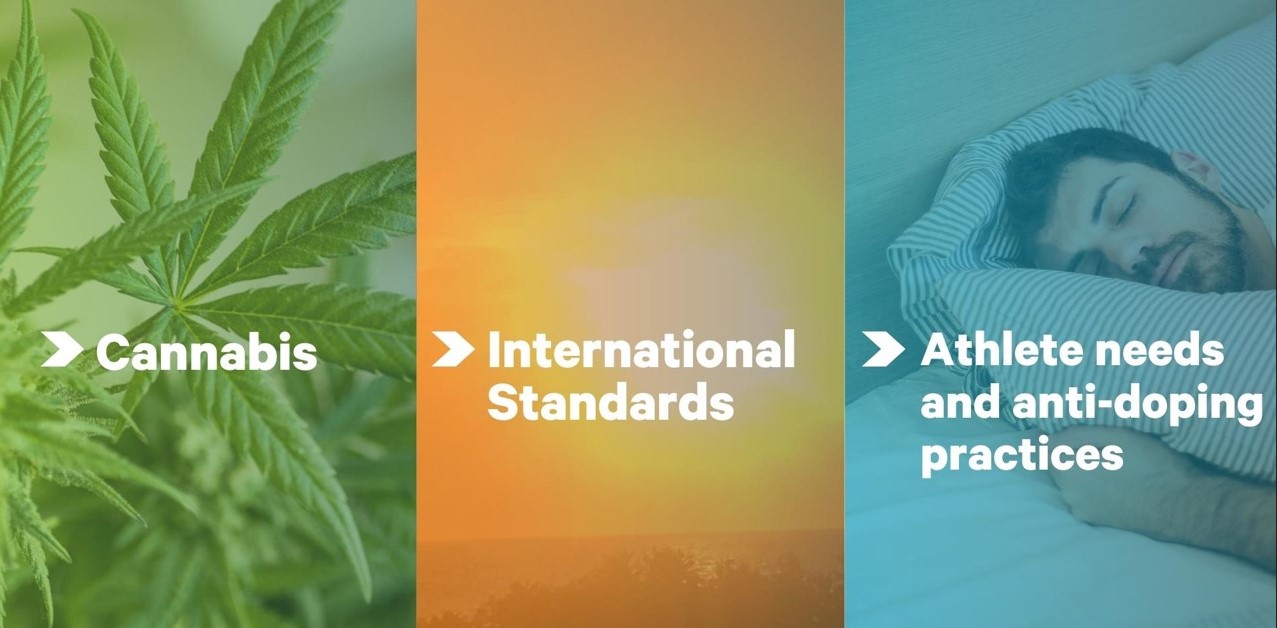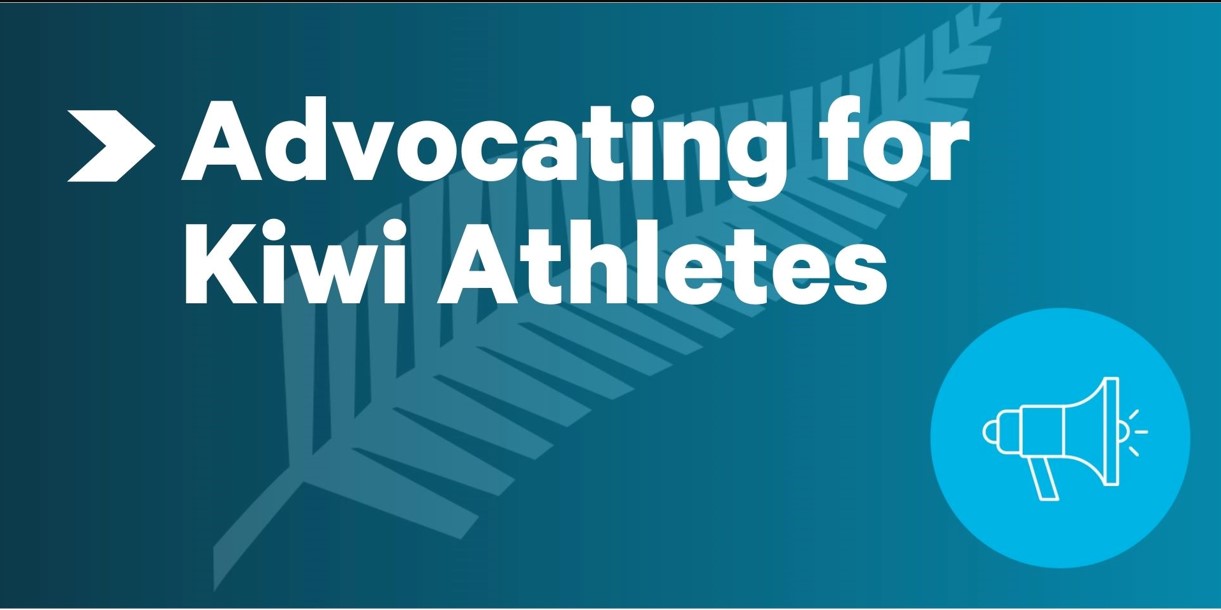Athletes at the heart: Advocacy in the anti-doping world
Athlete issues across the globe

Sha’Carri Richardson gets a 30-day cannabis sanction that nullifies her Olympic qualifier. As a result, she loses her spot on the USA’s Olympic team and misses the Games.
An athlete at the Games is forced to wait in blazing heat for hours after doping control after their game, unable to get proper recovery.
It’s late at night before an early morning World Championship event when doping control knocks on an athlete’s door, throwing their pre-comp prep (and sleep) into disarray.
Three totally different situations, occurring across the globe in different sports and to different athletes. How are they connected? Let’s look closer at those examples.
Was it right?
Sha’Carri Richardson ran in the USA’s Olympic qualifier, winning a spot for Tokyo. Post-race she was tested and it came back positive for THC, for cannabis. As a result, she was banned for 30 days, nullifying her results and thus she lost her spot on the Olympic team.
Let’s examine our Tokyo Olympics example. A Kiwi athlete had just finished a routine drug test after a tough match in the summer heat, through which he’d lost 3.5kg of water from his body. He’d left the doping control station to look for an athlete-only area for his recovery routine – and to get out of the blazing sun. The Tokyo Olympics was a COVID Olympics. He was refused entry to an athlete-only room because it was “full”. He tried to get back into the air-conditioned doping control station but was refused entry to protect the sanctity of the doping control process.
He was left outside in the heat for two and a half hours with limited food and missing his post-match recovery. His inability to properly recover and cool down had a significant impact on his subsequent performances: he was exhausted, suffered heatstroke and – later – an injury.
Let’s move to our World Championship athlete. A Kiwi athlete overseas with a key competition scheduled for early in the morning. They wanted a good night’s sleep to prepare – but at 10.45pm, doping control knocked at the door. We all know how long it can take to complete the sample collection process. The experience significantly impacted the athlete’s preparation and sleep. Was it only a Kiwi athlete, or did all competitors experience the same interruption?
Now let’s be clear: doping control can arrive to test an athlete at any time. It’s within WADA rules and our rules and preserves the element of unpredictability which is vitally important to anti-doping programmes. But everything can be considered on its merits. Was it the right choice to arrive this late on the eve of a World Championship?
Athlete needs and anti-doping practices

Behind the scenes, we have a role to play in each of these situations.
We believe the Sha’Carri Richardson situation should never have happened. We don’t think cannabis should be on the Prohibited List. It’s not performance enhancing, and we’ve been saying that for 15 years alongside a number of other NADOs across the globe.
Substances are put on the Prohibited List if they’re seen to meet two of three criteria: Enhancing performance, endangering health or against the spirit of sport. Every year, when the World Anti-Doping Agency consults on the upcoming Prohibited List, we advocate for cannabis to be removed. And we may be starting to see some progress. Sha’Carri’s situation instigated a review of cannabis and though WADA have accepted that probably doesn’t affect competition, they still believe it is against the spirit of sport. So, for now, cannabis is prohibited in sport and you’ll get a ban if you test positive for it.
The athlete shared this experience with us after the event. Sure, it wasn’t a testing issue, it was an issue with the organisation of the event. But no athlete should have an experience like this when needing to do a drug test.
We set up a meeting with JADA, explaining what had happened and the impact it had. They were very apologetic, and appreciated the feedback- highlighting that they would review their processes to ensure something like this wouldn’t happen again.
And our World Championship athlete? This is a little more complex. As we know, doping control can arrive at any time. But we still don’t think it is fair here. It may be that there were specific reasons, and we respect that, but we’re happy to ask the questions.
So, while we only heard about this experience much later, it’s something we’ve taken up with the WADA on behalf of the athlete as we continue to advocate for anti-doping experiences that balance the need for unpredictability and athlete needs.
Supporting athletes with the doping control process
If you have a bad testing experience, then we want to know about it. If something about the process doesn’t seem right, our advice to athletes is to complete the test (if not, you might be at risk of anti-doping rule violation proceedings for failure to comply), but to make detailed notes about what doesn’t feel right.
The simplest way of doing this is to write your concerns down on the doping control form. But if you’re not comfortable doing that, then contact us directly (or through a support person) once the test is over. Make notes, preserve any evidence and get in touch asap – via email if possible so that there’s a written record of your concerns.
We may not be able to ‘fix’ the situation as it occurs, but if there’s a process we can change or influence to the wider benefit of athletes, then we’ll do just that
Athletes at the heart
We advocate for high and consistently applied standards throughout the anti-doping world.
We advocate on the big stuff, like removing cannabis from the Prohibited List, even before Sha’Carrie Richardson’s ban, for equal testing for all, for education for nations that don’t do it, for an understanding of the Valieva case, how the lab was so slow etc.
Of course, there are some things we can’t change. If you're on the Whereabouts programme and you’ve entered next door’s address as your Whereabouts and missed a test, we can’t help. But if it’s a question of process – a chaperone not watching you pass your sample; only two beakers to choose from at doping control or being refused a representative to accompany you – let us know.
It’s our job to make sure that Kiwi athletes’ voices are heard.
***
'Athletes at the heart: Advocacy in the anti-doping world' | Presented by Nick Paterson, DFSNZ Chief Executive
Content presented live at the 2022 Cambridge Athlete Forum. See also:
